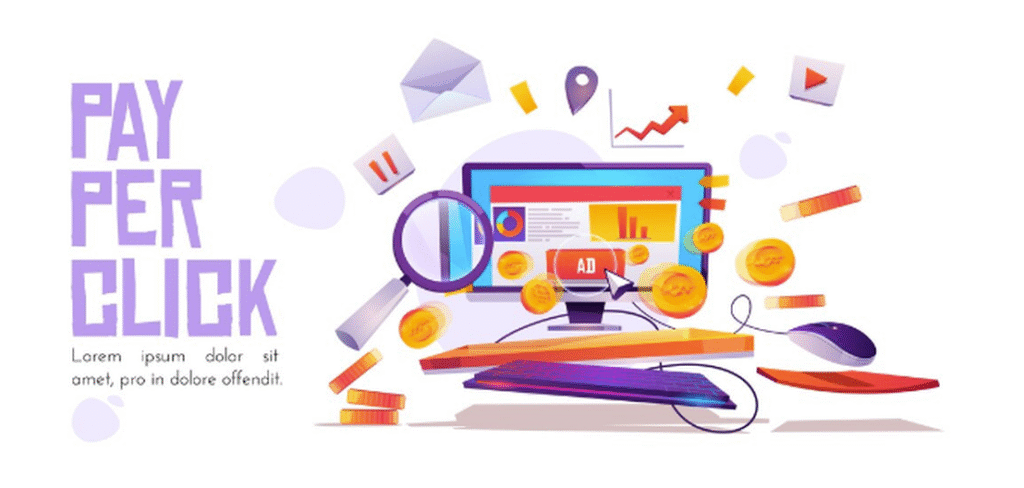In the digital-first economy of today, the management of eCommerce PPC has become one of the most influential methods for enhancing online business growth. According to my findings, companies have entered a competition not only for the best product or the lowest price but also for the most effective way to draw the digital eye. The continuous changes in algorithms of such platforms as Google and Meta require not just advertising but rather a precision-driven pay-per-click (PPC) management to stay ahead.
My personal experiences and market analysis say that the brands making good use of a specialized google ads management service not only get an increase in traffic but also have a considerable increase in conversion rates and retention of customers. It doesn’t matter if it’s a google ads management company, an expert google ads management agency, or a team that offers adwords management services, the goal is the same—to turn paid advertising into a growth engine that is both predictable and scalable.
Modern firms also require cutting-edge google adwords services and google adwords management services if they wish to remain in the competition. If prepared strategically, PPC can help businesses target the right people, with the right message, at the right time—thus increasing visibility, interaction, and income.
Understanding the Role of eCommerce PPC Management
To my understanding, the management of eCommerce PPC is more than just that running ads. It is an integrated method which consists of key word research, audience targeting, campaign optimization, and performance analytics combination. In a technology-led market where consumer behavior quickly changes, it becomes crucial to make decisions based on data.
One good example is that a skilled PPC manager doesn’t limit his/her work to selecting the well-known keywords for high traffic. He/she rather looks for the terms that best describe the intent of the buyer and thus scientific targeting is done to avoid unnecessary costs on ads and to make higher ROI assuring. Furthermore, with the help of automation and AI tools, companies can now real-time bidding, testing of ad variations and analysis of results—thus converting PPC from a cost center into a profit giant.
The Shift Toward Data-Driven Advertising
In my studies, I have come to the conclusion that the future of eCommerce is going to be represented by precision marketing and not by traditional marketing. The analytics behind the PPC platforms are now providing sales data with incomparable details including customer behavior, emotional engagement and even the device used to access the website.
Thus, the brands are able to produce campaigns that are perfectly matched to their customers and that really communicate with them. For instance, dynamic remarketing is enabling online shops to re-target their visitors with highly personalized ads who have browsed the store before. The strategy reinforces brand awareness and at the same time pushes the potential customers to the next step in the conversion process.
According to market analysis, the use of data in PPC management has led to a 30% increase in average conversion rates across various sectors. By recognizing the effective strategies and getting rid of the non-performing ones, the companies can continue to grow even in the competitive market.
Leveraging Automation and AI in PPC Campaigns
eCommerce PPC management has been totally transformed by automation. According to what I know, the likes of Google Ads have already started to utilize machine learning models to do the work of altering bids, selecting best-fitting keywords, and even producing responsive ad copies all by themselves.
On the other hand, with automated bidding strategies running, advertisers will have their ads shown at the converting times for potential customers. For example, an online retailer can use AI-assisted tools to automatically ramp up bids during peak hours or to lower them when the store’s technical performance is not so good.
Additionally, the use of automation results in a drastic reduction of mistakes humans make and in an increase of productivity. Human strategy combined with AI precision is indeed the driving factor that puts the leading eCommerce brands on the top of the competition.
Why Conversion Tracking Matters in eCommerce PPC
Based on my findings, conversion tracking is really the main thing that a good PPC strategy depends on. Just generating clicks is not the objective; the actual point is the number of clicks that turn into purchasing customers.
Marketers can utilize high-end analytical tools to monitor the whole process of a buyer from the start when the ad was shown to the end when the purchase was made. This complete view gives an opportunity to online stores to know which ads, keywords, and landing pages are bringing in the most revenue.
In my view, companies that give importance to conversion tracking are likely to have ad performance improved by 40% because they deal with results rather than shallow measures like clicks or impressions.
Enhancing Customer Experience Through Targeted PPC Ads
The customer experience does not commence with the site; rather it is the advertisement that heralds the experience. Studies show that personalized and pertinent advertisements can boost engagement rates by as much as 50%.
When a customer sees an advertisement that is directly relevant to their requirements, chances for them to click—and finally buy—go up significantly. Businesses can use the PPC ads as trust and loyalty building measures by segmenting the audience and sending out personalized messages.
Drawing an analogy, tempting the “winter discounts” to individuals living in the coldest regions or bringing out “summer necessaries” to the warmest areas not only proves the knowledge of the customer situation but also winning over the modern shopper appreciation which is really deep.
Integrating PPC with SEO for Sustainable Growth
PPC generates instant results whilst SEO gives long-lasting stability. According to my study, the combination of both tactics allows the eCommerce brands to gain the most exposure and at the same time the least acquisition cost.
To illustrate, revealing words from the PPC-funded campaigns can tell how to make the SEO content, thus there will be the same direction for the paid and organic activities. On the contrary, good performance in an organic way can minimize the use of paid traffic and thus the money can be allocated for more expansion.
A coordinated SEO and PPC plan results in a continuous increase in traffic, a high rate of conversion, and in general a stronger digital presence.
The Financial Impact of Effective PPC Management
The management of eCommerce PPC that is effective has a direct effect on the profits of a brand. In my opinion, a campaign that has been optimized perfectly can give a return on ad spend (ROAS) of 400% or even more.
Continuing to test the creatives alongside focusing on the most profitable keywords, improving the ad copy will lead to businesses’ sustainable profitability. Moreover, knowing exactly where every dollar of advertising expense goes—having transparency in ad spending—makes it possible for business leaders to take decisions based on data.
According to market research, companies that use professional PPC management services realize a revenue growth rate of 25–35% faster than those who manage their ads internally.
Adapting to the Tech-Driven Market Dynamics
Technology goes through constant evolution, and the same can be said for the behavior of consumers. According to my research, the transformation of online product discovery is driven by mobile-first shopping, voice search, and AI-powered recommendations.
To be in line with the changes, Pay-Per-Click (PPC) managers have to change their strategies accordingly. One such case is that voice search optimization requires the use of conversational keywords, whereas mobile optimization guarantees that the browsing experience is smooth no matter what devices are used.
Being quick to respond and not only being an expert are the factors that determine the success of eCommerce PPC management in a market that is heavily reliant on technology.
Conclusion: The Future of Paid Advertising and Digital Growth
Based on my research and market insights, eCommerce’s future growth will be a brilliant combo of technology, data, and human creativity. The companies that are good at eCommerce PPC management will not only continue to take over digital spaces but also create a steady flow of engagement and income.
In the future world of ads where everything is changing fast, coming to a meta ads agency, a meta advertising agency, or a meta ad agency that you can trust becomes really important. These specialists know how to go from Facebook and Instagram to new digital platforms with complex ad ecosystems and they are the ones to do it. Whether it is the professional meta ads company or all-round meta ads services, the aim is always the same—make the most out of every advertising dollar while establishing a brand that consumers can rely on.
From my learning, the brands that will be the first to tell the future of digital success are the ones that will power-up with agility to adapt, analyze, and act. Now is the time to perfect your PPC strategy and invest in growth backed by data.



